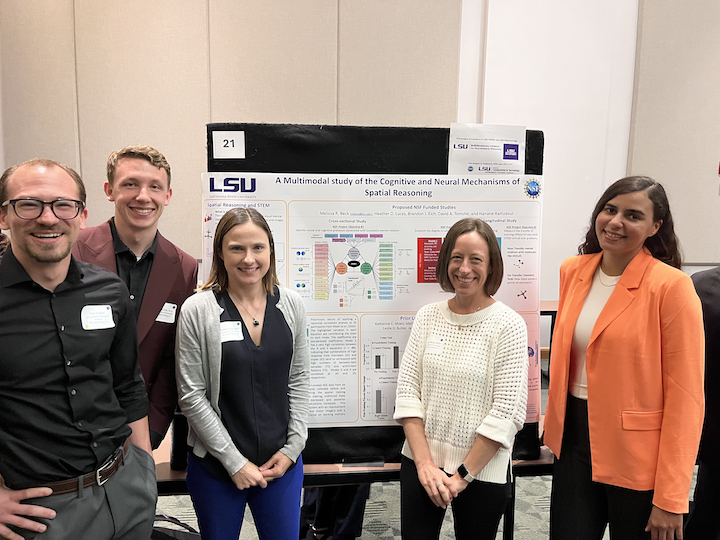Training Spatial Reasoning Toward Enhancing STEM Success
About the Project
Problem: Although spatial reasoning is a predictor of STEM success, STEM courses rarely train
students to develop spatial reasoning skills, and knowledge about how to effectively
train spatial reasoning is limited.

What is spatial reasoning?
The capacity to form and manipulate visual mental representations to reason about objects and images in space.
The capacity to form and manipulate visual mental representations to reason about objects and images in space.
Objectives: 1) identify neural and cognitive processes that are associated with successful mental
rotation; 2) establish the degree to which processes are responsive to training; and
3) measure the transfer of training effects to real-world STEM problems.

Why are spatial reasoning skills important?
One consistent predictor of retention and success in STEM fields is spatial reasoning ability.
One consistent predictor of retention and success in STEM fields is spatial reasoning ability.

What is mental rotation?
Mental rotation is a spatial reasoning task that requires rotating a mental representation to view an object from a different perspective.
Mental rotation is a spatial reasoning task that requires rotating a mental representation to view an object from a different perspective.




